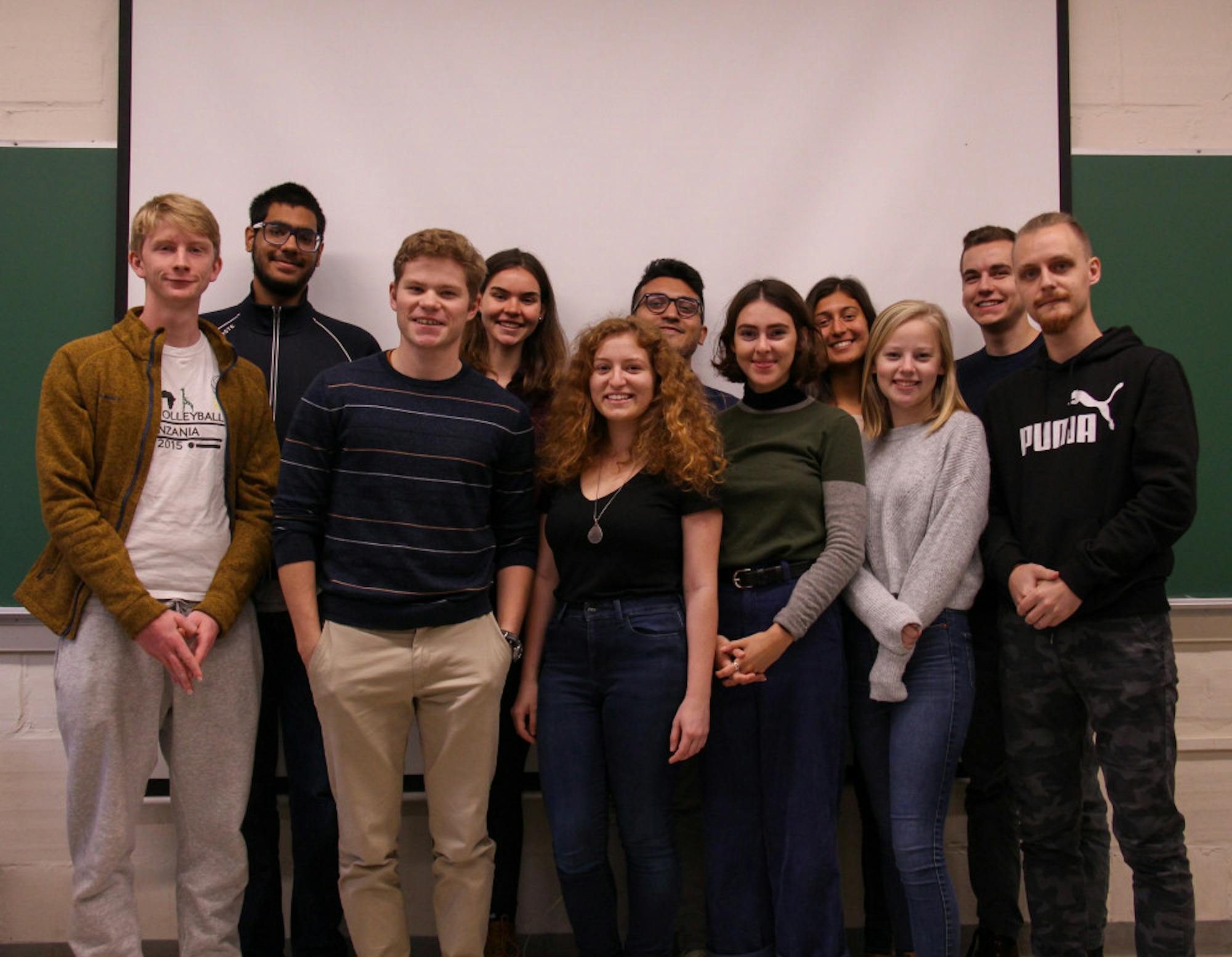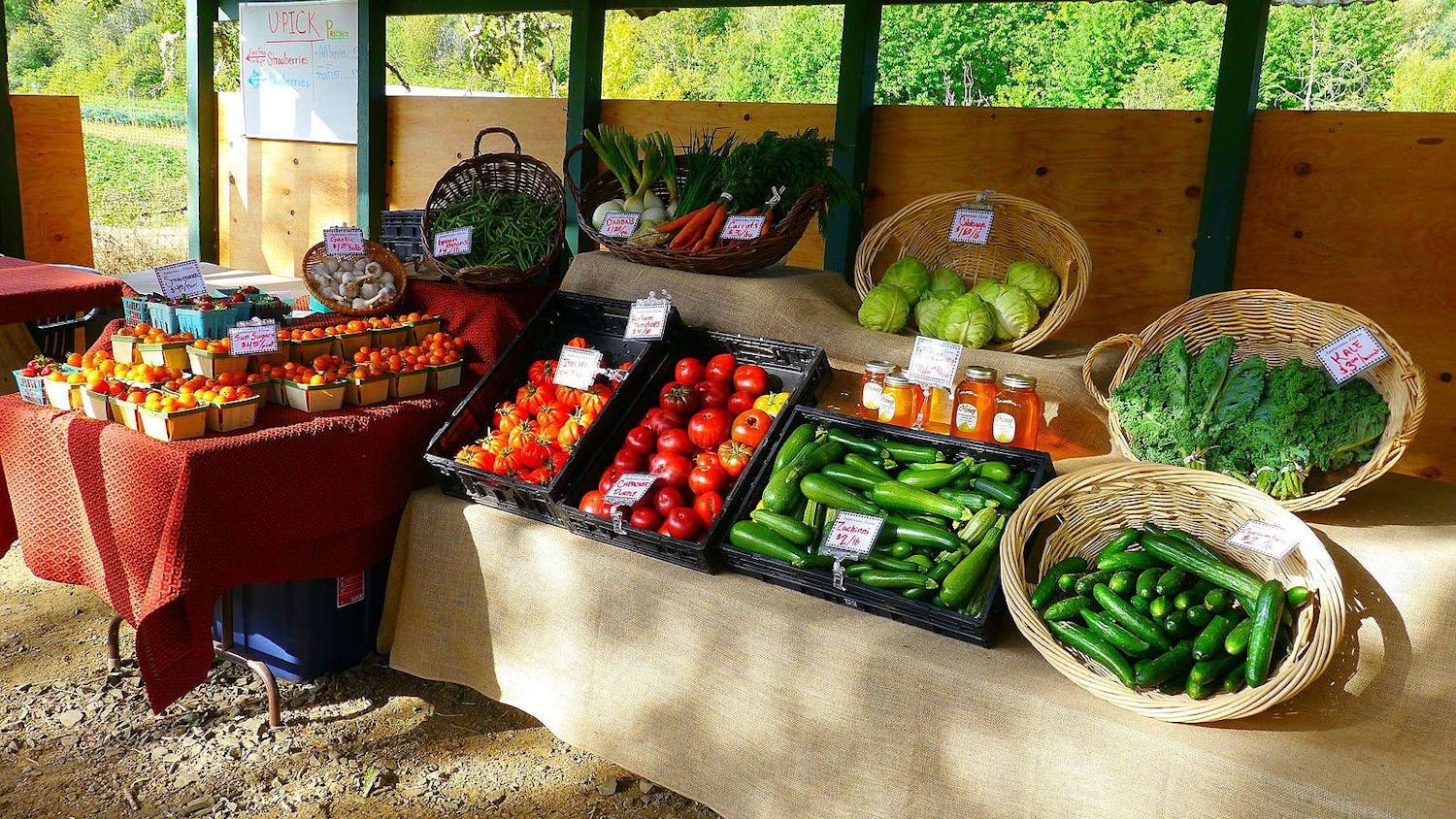On a research trip last March, junior Taylor Lewis boarded a bus to Marrakesh, with plans to interview college professors about Morocco’s education system. Little did he know that while on the bus, he would encounter young experts on Moroccan schools — in the form of two outgoing second graders. Lewis said that he now holds the conversation that they had as a treasured memory.
“[The students] just started speaking to me in Arabic. It was just the most surreal thing,” Lewis recalled. “I was so used to speaking to officials and college professors, and then I just had this conversation in broken Arabic with two second graders. They gave me a kiss on the cheek and then I left.”
Lewis met these students while on a research trip to Morocco with 14 other members of the Middle East Research Group (MERG), which was formerly known as the New Initiative for Middle East Peace (NIMEP).
MERG is a student-run club that partners with the Tufts Institute for Global Leadership (IGL). Participants organize research trips and engage in discussions about the Middle East.
Heather Barry, associate director of the IGL, said that students created the club around 2004 in order to start a more comprehensive dialogue about the region, rather than focusing solely on the Israeli-Palestinian conflict.
“[The students] wanted to ... involve people from all different backgrounds, whether they were from the Middle East or not, who were interested in thinking about the region as a whole,” she said.
While the number of participating students has fluctuated since then, the organization was revamped last year with approximately 25 student participants. More recently, the club decided to change its name from New Initiative for Middle East Peace to Middle East Research Group. The group will be updating its website and logo within the coming weeks to reflect the change.
Lewis, who serves on MERG’s executive board, explained that this change was designed to emphasize the club’s goals.
“First of all, it’s not a new club, it’s an old club that we are bringing back. Second of all, the focus of our club is less about ‘peace,’ which is a very political thought and dynamic. We wanted to focus on all sorts of topics, including the culture of the region, economics and politics,” he said.
He added that the club did not want to give an impression of believing that they had all the answers.
“We also think it sounded a little bit ‘presumptuous’ as if our small, student-run think-tank can solve peace in the Middle East. We’re not going to pretend that we can do that,” he said.
Rather, according to senior and current co-president Miranda Macaulay Miller, MERG seeks to establish a discourse on Tufts campus that promotes understanding of the Middle East outside of the classroom.
“While I am studying Arabic and studying the Middle East, I don’t feel like I often get to hear from other students about what they are thinking about the region. So it’s really cool to have people talking about it all in one place,” Miller said.
MERG holds weekly discussions that revolve around these issues, Barry said. Often, students complete a reading beforehand, which helps drive the discussion. In addition to these more informal conversations, the club puts on one to two big events per semester, often headlined by keynote speakers. Club members cited last year’s symposium on the civil war in Yemen as one of their proudest accomplishments.
Junior and past co-president Uzair Sattar noted that MERG invited a multitude of speakers to discuss both the geopolitics and humanitarian aspects of the war. Participants organized the event just a month after the club’s reconstitution.
“The group picture we took after the symposium was probably one of my favorite moments with [MERG] because of what it meant to all of us. Being able to pull it off with such a new club and such a small club really set the tone for the rest of the year,” Sattar said.
In addition to these on-campus events, MERG organizes an annual research trip. Last year, 15 members of the grouptraveled to Morocco. According to Barry, these students explored a range of issues including migration, water security, education development and art. The students gained hands-on experience by conducting a series of interviews with Moroccan city officials, businessmen and college professors.
Senior and current co-president Esra Gurcay spent her time in Morocco researching the promotion of Sufism — a branch of Islam often defined as "Islamic mysticism" — as a strategy for counter-terrorism. As a part of her research, Gurcay spent the day at Al Akhawayn University, in Ifrane. Gurcay said that initially, she only had official plans to interview one professor from this university. By the end of the day, she had interviwed five.
“It was surprising to me to see that these amazing, very accomplished professors would respond to our emails. Especially since we were these random students from the U.S., doing a research project on something that we didn't even know that much about,” she said.
Students found that these types of interactions enhanced the research they completed prior to arriving in Morocco.
“You have to do a lot of research before going on the trip, because it’s not like staying in a country for a week and a half is going to get you all of your answers. That being said, the trip really allowed me to see what I was researching in a different light and talk to some amazing people,” Lewis said.
The group is in the process of selecting the location for their next research trip. Lewis said that potential locations include Cyprus or Algeria. All Tufts students are welcome to apply to go on the trip, not just those who participate in MERG. In the meantime, Lewis and other members of MERG look forward to an upcoming panel on antiquities in the Middle East.
“We are really trying to expand our outlook by looking into more cultural aspects that are not always discussed a lot. We are currently reaching out to professors to try to get speakers. It’s just going to be one panel, likely in the third week of October. Nothing is finalized yet but it is in the works,” Lewis said.
IGL's Middle East Research Group continues seeking insights under new name

Members of Middle East Research Group, housed in the Institute for Global Leadership, pose for a portrait on Oct. 9.





